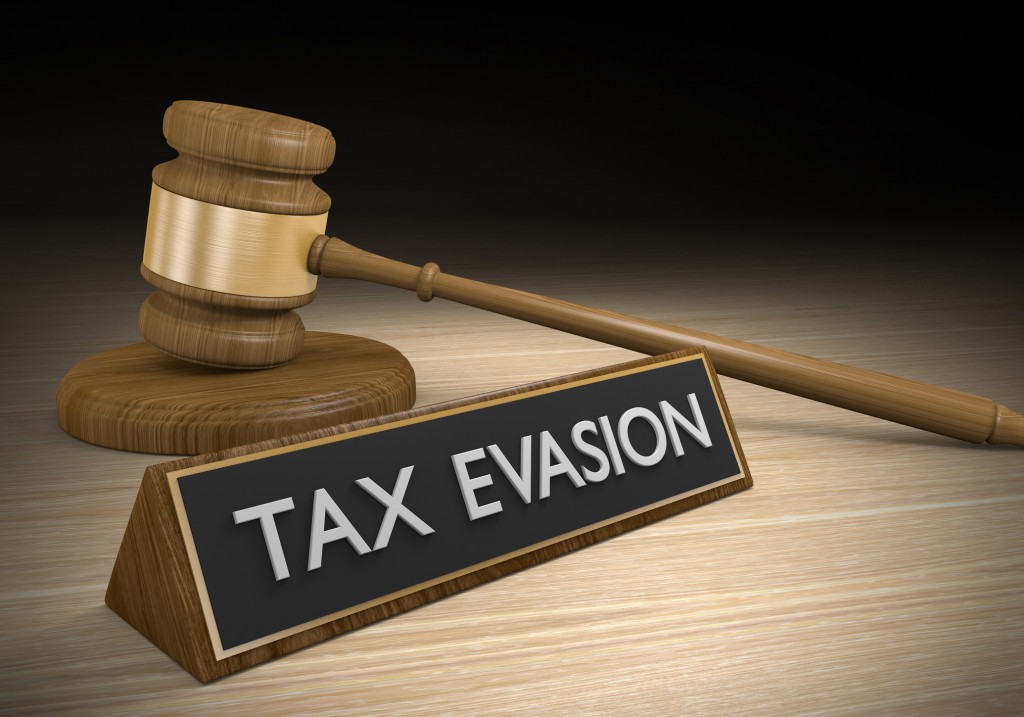Sources Attributable to the Sales Tax Gap
Bilal Hassan
In Pakistan, people prefer to make business transactions in cash rather than through banking channels. Only 13 percent Pakistani nationals have formal bank accounts as compared to 83 percent people in Sri Lanka, 53 percent in India, 31 percent in Bangladesh and 92 percent in Iran, according to the JCR-VIS sector update of October 2016. This is the informal or cash-based economy which usually has a high rate of uncollected sales tax revenue.
Informal economy predominantly consists of small- and medium-sized enterprises resulting in uneven market competition, and a loss of market share and profitability of registered businesses. Such entities constitute 80 percent of the total enterprises.
In view of the dominance of unregistered businesses in large, informal sectors, legitimate businesses have difficulties in purchasing inputs from registered suppliers because they are difficult to find. Purchases from legitimate suppliers do include sales tax, but that sales tax can be deducted by the customer, which means that it is not an actual burden on the purchaser, unless the purchaser is not registered. Non-registered suppliers commonly offer inputs of similar quality for lower tax-exclusive prices. This is one of the reasons why sales tax gap is significant in Pakistan.
The Sales Tax Act, 1990 (hereinafter Act), provides that a person commits sales tax fraud when making taxable supplies without being registered under the Act or being involved in falsifying sales tax invoices, either understating the tax liability or overstating the entitlement to tax credit or refunds. In either case, tax revenue loss occurs.
 All persons engaged in making taxable supplies in Pakistan are required to be registered. As a considerable part of Pakistan’s economy is informal, taxable supplies are being made without registration by persons who are liable to be registered under the Act.
All persons engaged in making taxable supplies in Pakistan are required to be registered. As a considerable part of Pakistan’s economy is informal, taxable supplies are being made without registration by persons who are liable to be registered under the Act.
Even the registered businesses do not always operate within the limits of the sales tax legislation, because they frequently acquire fake purchase invoices in order to boost deductible input tax. Analysis of data of some registered businesses reveals that they have applied for input tax in relation to purchases that were not even related to their business activity. Some registered businesses, apparently, are dormant as they file nil returns for many years. But, in reality, they issue fake invoices enabling other registered businesses to deduct large amounts of input tax. As with many economies in the world, it is a daunting challenge to tackle the issue of fake and flying invoices in Pakistan.
On issuance of concessionary statutory regulatory orders (SROs), many dummy firms get fake registration with principal business activity as services and wholesaler just for the purpose of issuing fake and flying sales tax invoices so as to accommodate and facilitate other buyers and suppliers to reduce their tax liability or to apply for refunds. These firms register in the name of employees or persons having no connection with any business activity on the basis of fake documents. Such sales tax-related identity frauds occur in every jurisdiction but frequency of their occurrence is much more in developing countries like Pakistan.
Limited sales tax capacity has great bearing on the revenue performance of sales tax system in any jurisdiction. Sales tax capacity may be influenced by factors, including political institutions, level of development, trade openness, hard-to-tax supplies, etc. Political institutional determinants such as government effectiveness, regulatory quality and rule of law are statistically significant determinants of C-efficiency. Other political institutional variables such as political stability, absence of violence (terrorism), control of corruption and perception regarding accountability are also correlated with C-efficiency. Weak government writ, poor rule of law, fragile institutions, pervasive corruption and ineffective accountability processes in Pakistan could be important sources contributing to limited tax capacity and to significant sales tax gap.
Development is associated with higher level of education, literacy and technology. Such variables raise the capacity of country to administer taxes. Pakistan is a developing country with human development index (HDI) at 150th out of 189 countries in 2018, which was the lowest among the South Asian nations, e.g. Sri Lanka (76th), India (130th), Bangladesh (136th) and Nepal (149th). Pakistan falls in the bottom quartile of countries in terms of human capital index (HCI) launched by the World Bank, which could be an important factor contributing to low per capita GDP (USD 1,541). Poor HCI also provides evidence regarding low level of investment in human resource development. For example, education spending is less than 2.5 percent of GDP. Consequently, Pakistan’s literacy rate (individuals of ages 10 and above) stands at 58 percent, which is also the lowest in South Asia. Low literacy rate associated with less development is an obstacle to provide sufficient knowledgeable and technically sound workforce essential for effective implementation of sales tax policies and preventing of sales tax evasion and fraud.
Last but not least are the hard-to-tax supplies such as financial services, including deposits, lending, issuance of financial securities, insurance, brokerage, advisory services, etc. and agriculture inputs and outputs that influence revenue performance of the sales tax regime. Pakistan’s economy is predominantly agro-based with 24.7 percent contribution of agriculture to total GDP, exemptions, reduced rates and zero rates applied to agriculture inputs and outputs. Thus agriculture sector continues to avoid full taxation under the sales tax regime due to limited tax capacity.
Besides, standard sales tax rate of 17 percent on supply of taxable goods, reduced rates are also applicable to certain taxable transactions. Multiple rates are associated with higher administrative and compliance costs, and hence, reduced revenue efficiency of the sales tax regime.
In accordance with the destination principle, only exports are to be zero rated. However, apart from exports, zero rating is allowed on numerous other goods in the current sales tax regime. Zero rating on local supplies imposes costs on the government in the form of payments of sales tax refunds and increases cost for administration while processing sales tax refunds for hundreds – perhaps thousands – of non-exporters.
In the prevailing sales tax legislation, exemptions (exemptions with no right to deduct input VAT) apply to both imported and local supplies of goods. A long list of sales tax exemptions is appended with the Sixth Schedule to the Act. A considerable amount of revenue is being sacrificed due to sales tax exemptions every year. For example, sales tax revenue lost due to exemptions was PKR 281 billion in 2017/18.
From above analysis, it could be easily inferred that the sales tax gap has three main components: policy gap, compliance gap and administrative efficiency gap.
 Jahangir's World Times First Comprehensive Magazine for students/teachers of competitive exams and general readers as well.
Jahangir's World Times First Comprehensive Magazine for students/teachers of competitive exams and general readers as well.



